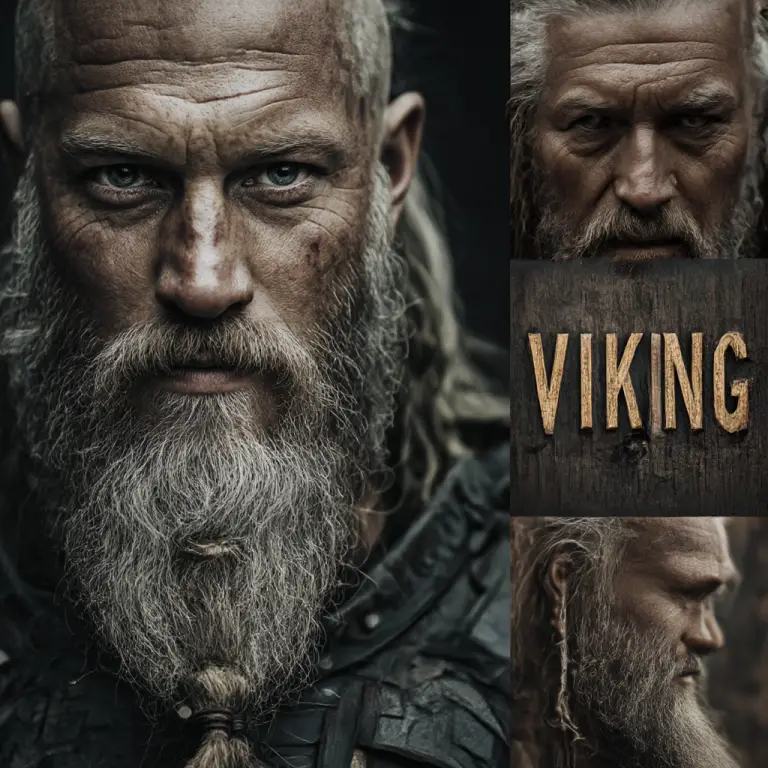Viking Words Used Today: Legacy of the Norse Language
The Viking Age, spanning from the 8th to the 11th century, left a lasting impact on modern English. As the Norsemen explored, raided, and traded across vast parts of Europe, their language and culture deeply influenced many aspects of the regions they encountered. Here’s a look at some Viking words that have survived in the English language today, showcasing the enduring legacy of the Old Norse language.
Common Everyday Words
Sky: Derived from the Old Norse word “skyl”, meaning “cloud” or “sky”. The term eventually evolved to represent the entire expanse above the earth.
Gift: The word “gift” in English comes from the Old Norse word “gift”, meaning “a present” or “something given.” This was used in Viking culture both in terms of social exchange and offerings to the gods.
Knife: From the Old Norse word “knífr”, meaning “a cutting tool”. Knives were essential tools in Viking life, and this word has been adopted into English without significant change.
Window: The term “window” is derived from the Old Norse words “vindauga” (wind-eye), referring to an opening or a place where the wind comes through, eventually becoming the “window” we know today.
Terms Related to Vikings and Norse Culture
Berserk: The word “berserk” comes from “berserkr”, referring to a Norse warrior who fought with an almost uncontrollable rage, believed to be caused by the power of Odin. In modern English, “berserk” describes someone acting in a wild or frenzied manner.
Husband: The English word “husband” comes from the Old Norse “húsbóndi”, meaning “master of the house” or “householder”. The word reflects the Viking societal structure, where men were often responsible for the household.
Saga: The word “saga” comes from Old Norse “saga”, meaning “a tale” or “story”. In modern English, a “saga” refers to a long, detailed narrative, often about heroic deeds or historical events.
Viking: The word “Viking” itself originates from the Old Norse “víkingr”, meaning “a pirate” or “raider”. In modern English, it refers to the Norse seafarers known for their exploration, trading, and raids across Europe during the Viking Age.
Words Related to Norse Mythology and Religion
Thor: The Norse god of thunder, Thor gave us the days of the week, with “Thursday” being named after him (“Thor’s day”). His name has also survived in various languages, illustrating his cultural influence.
Yule: Derived from Old Norse “jól”, the term “Yule” refers to the winter solstice celebrations, which later merged with Christmas traditions. The word continues to be used today, especially in terms like “Yuletide” to refer to the holiday season.
Ragnarok: “Ragnarok”, from Old Norse, refers to the prophesied end of the world in Norse mythology. Today, it’s used metaphorically to describe any event or series of events that leads to great destruction or a dramatic ending.
Odin: The chief of the Norse gods, Odin‘s name survives in various words, such as “Wednesday”, which is named after him (“Woden’s day” in Old English, after the Norse god Woden, another name for Odin).
Words from Norse Law and Society
Thing: In Old Norse, the “þing” referred to an assembly or council, where legal matters were discussed and disputes were settled. The modern English word “thing” comes from this root, reflecting the concept of a gathering or important matter.
Outlaw: The word “outlaw” originates from Old Norse “útlagr”, meaning “one who is placed outside the law”. In Viking society, being declared an outlaw meant losing all rights and protection, a severe punishment.
Skald: The term “skald” referred to a poet or storyteller in Norse society. These poets were responsible for recounting heroic tales and the deeds of kings and warriors. Today, the word “skald” is sometimes used to refer to poets or those who create narrative verse.
Impact on Modern Place Names
Scotland: The name “Scotland” derives from the Latin word “Scoti”, used to describe the Gaelic-speaking tribes. However, many place names in Scotland, such as “Isle of Skye”, come from Old Norse, reflecting the Viking influence on the region.
York: The name of the city “York” in England comes from the Old Norse “Jorvik”, a major Viking settlement. The influence of Norse rule is still evident in the region’s architecture and place names.
Conclusion: The Lasting Legacy of Viking Language
The Viking legacy continues to resonate through the words and terms that have been passed down over centuries. From everyday objects like “knife” and “sky” to words deeply rooted in Norse mythology, the influence of Old Norse is an integral part of the English language. As the Vikings spread across Europe, they left an indelible mark not only on the cultures they encountered but also on the language we speak today.
By understanding the Viking words that have survived into modern English, we can better appreciate the enduring influence of the Norse on our language, culture, and even the way we understand the world around us.
